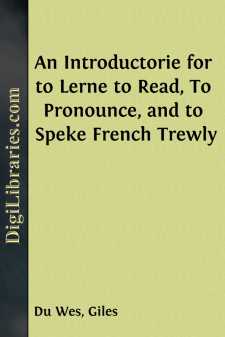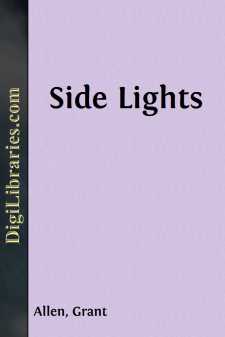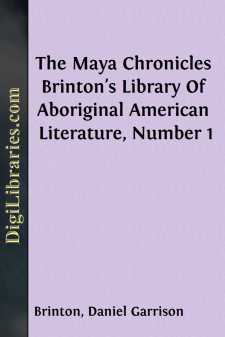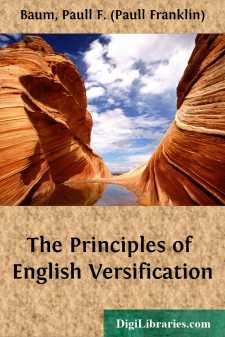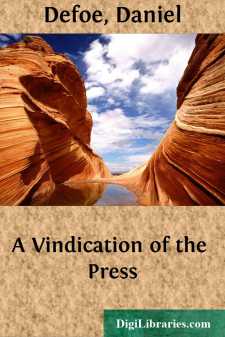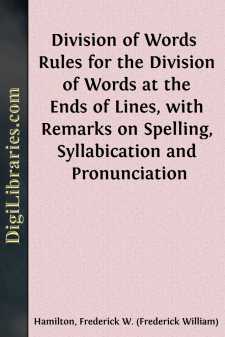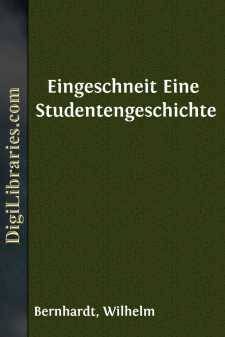Language Arts & Disciplines
Language Arts & Disciplines Books
Sort by:
by:
Giles Du Wes
FOR IMPLORATION OF GRACE. Grace of God that I love so mocheG race de Dieu que jayme tant I your requier ryght humblyI e uous requier treshumblement the gift of love without any furtherL e don damour sans plus auant of it to make any refuceE n faire aulcun refusement If ye do fynde in any wiseS e uous trouués aulcunement of me service, but in trouthD e moy seruice quen loyaulté I gyve you leve...
more...
by:
Grant Allen
I. LETTER-WRITERS. Since old Leisure died, we have come to think ourselves altogether too fine and too busy to cultivate the delightful art of correspondence. Dickens seems to have been almost the last man among us who gave his mind to letter-writing; and his letters contain some of his very best work, for he plunged into his subject with that high-spirited abandonment which we see in...
more...
INTRODUCTION. CONTENTS. 1. The Name “Maya.” 2. The Maya Linguistic Family. 3. Origin of the Maya Tribes. 4. Political Condition at the time of the Conquest. 5. Grammatical Observations. 6. The Numeral System. 7. The Calendar. 8. Ancient Hieroglyphic Books. 9. Modern Maya Manuscripts. 10. Grammars And Dictionaries of the Language. § 1. The Name “Maya.” In his second voyage, Columbus heard vague...
more...
I. ORIGIN OF THE WORK. About a generation ago Mr. Matthew Arnold twitted our nation with the fact that "the journeyman work of literature" was much better done in France—the books of reference, the biographical dictionaries, and the translations from the classics. He did not especially mention dictionaries of the language, because he was speaking in praise of academies, and, as far as France...
more...
PREFACE Most of the older discussions of English versification labored under two difficulties: an undue adherence to the traditions of Greek and Latin prosody more or less perfectly understood, and an exaggerated formalism. But recently the interest and excitement (now happily abated) over free-verse have reopened the old questions and let in upon them not a little light. Even today, however, a great...
more...
by:
Daniel Defoe
INTRODUCTION A Vindication of the Press is one of Defoe's most characteristic pamphlets and for this reason as well as for its rarity deserves reprinting. Besides the New York Public Library copy, here reproduced, I know of but one copy, which is in the Indiana University Library. Neither the Bodleian nor the British Museum has a copy. Like many items in the Defoe canon, this tract must be...
more...
To the ethnologist and to the philologist the Dakotas and those speaking kindred languages are a very interesting people. There are four principal Dakota dialects, the Santee, Yankton, Assinniboin and Titon. The allied languages may be divided into three groups: I. a, Winnebago; b, Osage, Kaw, and 2 Quapaw; c, Iowa, Otoe and Missouri; d, Omaha and Ponka. II. Mandan. III. a, Minnetaree (Minitari) or...
more...
SPELLING The idea that there is one right way to combine the letters representing a certain sound or group of sounds, that is a word, and that all other ways are wrong and little short of shameful is a comparatively new idea among us. The English speaking folk held down to a comparatively recent time that any group of letters which approximately represented the sound was amply sufficient as a symbol of...
more...
INTRODUCTION The ranks of those illustrious men who a few decades ago, in war and peace, stood by the side of Emperor Wilhelm I.—of glorious memory—have gradually thinned. On the 9th of November, 1896, another of the few then surviving—Dr. Emil Frommel, Supreme Councillor of the Prussian Consistory, formerly chaplain to the Imperial Court and pastor of the “Garnisonkirche” in Berlin—closed...
more...
CHINA AND THE CHINESE THE CHINESE LANGUAGE If the Chinese people were to file one by one past a given point, the interesting procession would never come to an end. Before the last man of those living to-day had gone by, another and a new generation would have grown up, and so on for ever and ever. The importance, as a factor in the sum of human affairs, of this vast nation,—of its language, of its...
more...


